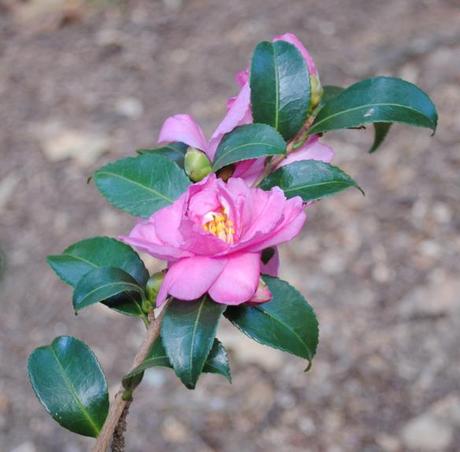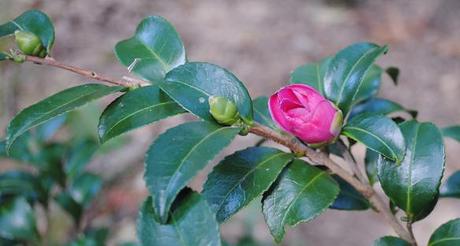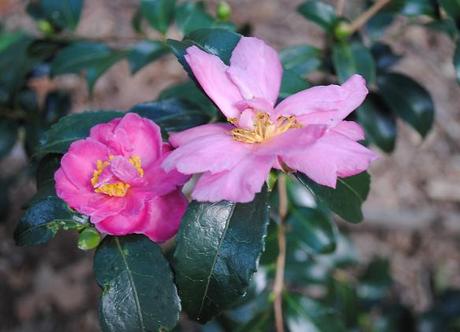It’s Camellia sasanqua season. Mine have just started to bloom.

These evergreen shrubs, which are hardy in USDA Zones 7-9, are less well known than their spring-blooming counterparts, Camellia japonica. Typically, sasanqua leaves are slightly smaller. They are less prone to many diseases than their japonica brothers and sisters. I’ve only ever seen camellia leaf gall on mine, and that disease is easily controlled by plucking off the swollen leaves. Never compost leaves infected with leaf gall, or the spores may overwinter and spread.

In the way of care, Camellia sasanquas appreciate light pruning for shape, as they get leggy on their way to 6-10′ high and 5′ wide. Feed with an organic, slow-release fertilizer like cottonseed meal or a fertilizer indicated for azaleas, and mulch with compost a few times a year. They do require acid soil (a pH of 5.5 to 6.5 is recommended), and prefer light shade to direct sun exposure.
These lovely shrubs bloom throughout the fall and winter and into very early spring. To my mind, this makes them indispensable. If your winters are relatively mild (lows to 5 F or -15 C), Camellia sasanqua is well worth its space in the garden.


